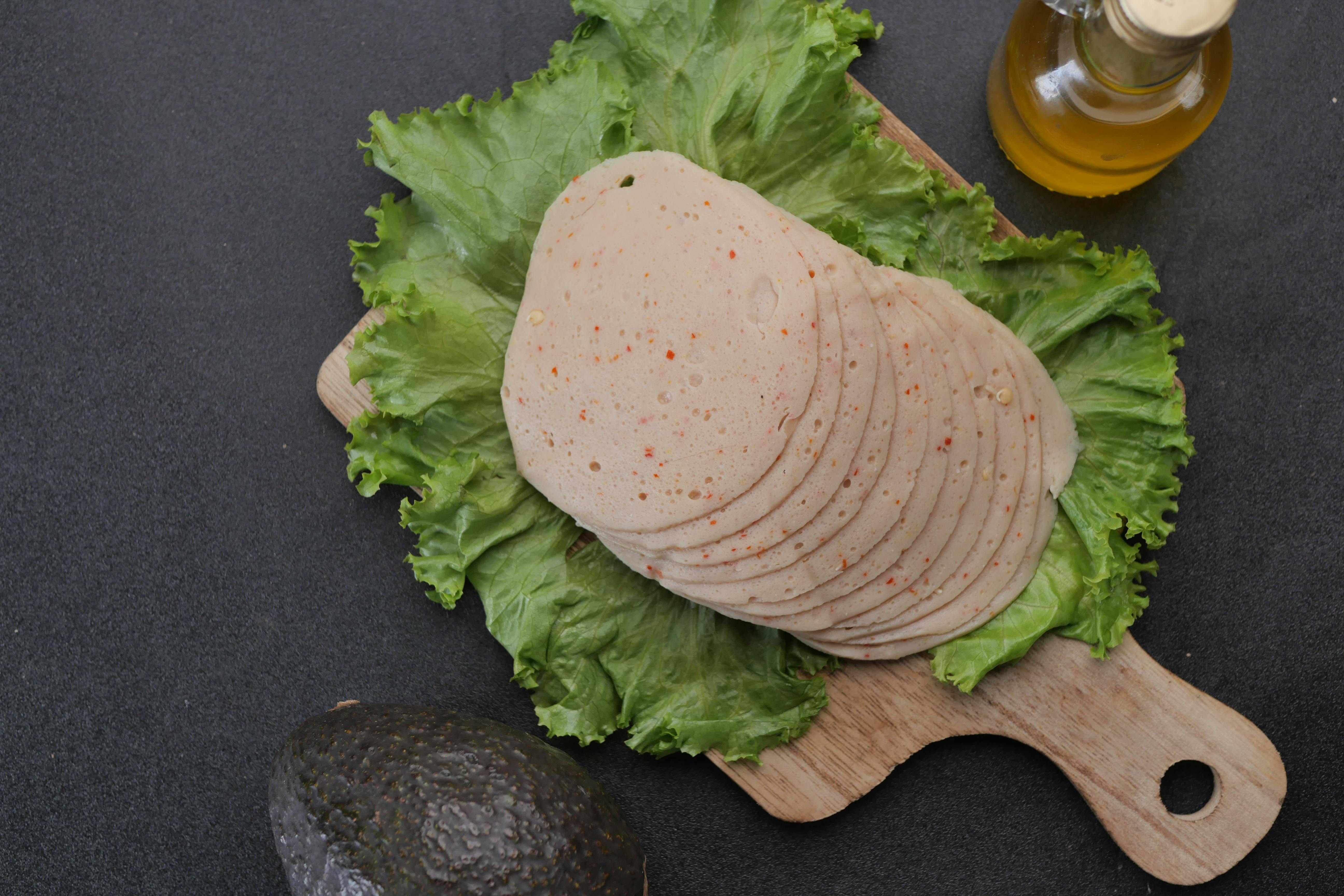
Smart Ways to Optimize Your Gout Diet for 2025 Success
As we step into 2025, the importance of a well-structured gout diet becomes clearer than ever. A strategic approach to nutrition can not only help manage gout symptoms but also enhance overall well-being. Gout management involves navigating through an array of dietary changes focused on uric acid reduction. This article delves into effective methods to optimize your gout diet, ensuring you have flavorful and nutritious options while minimizing flare-ups.
Benefits of adopting a gout-friendly diet include improved joint health, inflammation reduction, and potential weight loss. By focusing on low purine foods and incorporating anti-inflammatory ingredients, you can make a significant impact on your lifestyle. Let's explore the key strategies that facilitate better health outcomes for individuals dealing with gout.
Here are the main takeaways from this article:
- Understand the role of dietary changes in gout management.
- Identify essential foods for inflammation reduction and uric acid control.
- Learn practical meal planning and prep tips for effective gout management.
Identifying Low Purine Foods for Gout Management
Building a diverse diet around low purine foods is essential for effective gout management. These foods play a key role in lowering uric acid levels, ultimately reducing the likelihood of painful flare-ups. Low purine foods generally include fruits, vegetables, whole grains, nuts, and low-fat dairy products.
Best Fruits for Gout
Fruits play a pivotal role in a gout-friendly diet, providing essential vitamins while helping to reduce inflammation. Cherries, in particular, are noted for their potential in lowering uric acid levels. Studies suggest that regular cherry consumption can significantly lower the risk of gout flare-ups. Other fruits, such as blueberries, strawberries, and citrus fruits like oranges and grapefruits, are also recommended for their anti-inflammatory properties.
Vegetable Sources to Include
Vegetables are another cornerstone of a low purine diet. Leafy greens, such as spinach and kale, are nutrient-rich and can help combat inflammation. Other excellent vegetable sources include bell peppers, broccoli, and carrots. Opting for plant-based meals can greatly contribute to overall health and provide the necessary antioxidants to fight inflammation.
Whole Grains for Nutritional Balance
Incorporating whole grains like brown rice, quinoa, and oats helps in maintaining a balanced diet. These foods are rich in fiber, which aids in digestion and can promote weight loss—an essential aspect of gout management. Maintaining a healthy weight is crucial to lower the risk of gout attacks and manage overall health more effectively.
Hydration and Water Intake
Proper hydration plays a significant role in gout management. Drinking plenty of water helps flush out uric acid from your system and maintains kidney function. Aim for at least 8-10 glasses of water daily, particularly if you are consuming high-protein foods. This not only helps with uric acid reduction but also supports joint health.
Avoiding Alcohol and Processed Foods
It is essential to limit alcohol intake, as beverages like beer are linked to increased uric acid levels. Similarly, processed foods often contain hidden sugars and purines that can trigger gout symptoms. Instead, focus on natural and whole food sources to create a balanced diet that reduces inflammation.
Meal Planning for Gout Success
Meal planning can help simplify the process of adhering to a gout-friendly diet. It involves preparing meals in advance to ensure you make healthier choices throughout the week. Here are some effective strategies you can incorporate:
Creating a Grocery Shopping List
When grocery shopping, write down low purine foods and healthy choices that fit within your dietary guidelines. Include a variety of fruits, vegetables, whole grains, and healthy snacks. By bringing a list, you can avoid impulse purchases that may lead to unhealthy eating habits.
Smart Meal Prep Tips
Meal prepping can save you time and help you stay consistent with your diet. Prepare meals for the entire week by batch cooking and storing them in portion-controlled containers. This not only helps in managing portion sizes but also ensures you have nutritious meals ready when you're hungry.
Portion Control and Meal Frequency
Practicing portion control is vital for maintaining a healthy weight and reducing strain on your joints. Smaller, more frequent meals throughout the day can also enhance digestion and stabilize blood sugar levels. Pay attention to serving sizes and listen to your body's hunger cues.
Cooking Methods that Preserve Nutrients
The way you cook your food can impact its nutritional value. Opt for healthy cooking methods like grilling, steaming, or baking instead of frying. This not only preserves the nutrients in your foods but also limits unhealthy fats that can contribute to inflammation.
Incorporating Anti-Inflammatory Foods
Integrating anti-inflammatory ingredients is essential in your gout management plan. Foods like fatty fish (salmon, sardines), berries, nuts, and olive oil are known to fight inflammation. Make these ingredients a staple in your meal prep for added health benefits.
Common Gout Triggers and How to Avoid Them
Understanding your personal gout triggers is crucial for effective management. While certain foods might affect some individuals, not everyone experiences the same reactions. Here are some common triggers along with strategies to avoid them:
High Purine Foods to Steer Clear Of
Foods high in purines like red meats, certain seafood (like shellfish), and organ meats should be minimized or avoided altogether. Knowing which foods to limit strengthens your dietary control and aids in uric acid reduction.
Sugar Intake Awareness
Limiting sugar intake, particularly from sugary drinks and desserts, can help manage weight and inflammation. Natural sugars from fruits are acceptable, but refined sugars should be minimized. Explore healthier alternatives like herbal teas as a substitute for sugary beverages.
Caffeine Effects and Considerations
Though moderate caffeine intake may not significantly affect uric acid levels, excessive consumption can potentially lead to dehydration. Maintain a balance; moderate consumption can be fine, but hydration should be prioritized.
Regular Exercise for Holistic Health
Incorporating regular physical activity is important for overall health and weight management. Exercise helps reduce inflammation and improve joint health. Find activities you enjoy to make exercising a part of your routine. Aim for at least 150 minutes of moderate aerobic activity each week.
Stress Management Techniques
Stress can exacerbate gout symptoms, so incorporating relaxation techniques like yoga or mindfulness is beneficial. Managing stress can help reduce the frequency and intensity of gout flare-ups. Consider seeking support from wellness groups that focus on lifestyle changes.
Consulting a Dietitian for Personalized Guidance
Consulting with a registered dietitian can provide personalized nutrition advice tailored to your specific needs. They can help you design a meal plan that accommodates your gout condition, assisting in healthy eating and effective lifestyle changes.
Food Journaling Insights
Keeping a food journal can aid in tracking symptoms and identifying triggers. Documenting what you eat alongside any flare-ups allows you to understand how certain foods impact your condition. This awareness can empower you to make more informed dietary choices.
Evidence-Based Dietary Supplements
Some individuals may consider food supplements to support their diet. Look for evidence-based options like omega-3 fatty acids, vitamin C, and anti-gout herbal extracts. Always consult with a healthcare professional before adding new supplements to your regimen.
Exploring Holistic Solutions
Adopting a holistic approach to your health can lead to long-lasting lifestyle changes. Beyond dietary adjustments, consider combining nutritional strategies with mental wellness techniques for a comprehensive gout management plan.
Frequently Asked Questions about Gout Diet
Understanding gout and its dietary implications often leads to many questions. Here are some common queries along with practical recommendations:
What can I eat to reduce gout symptoms?
Focus on incorporating low purine foods such as fruits, vegetables, whole grains, and low-fat dairy. Stay hydrated and limit high-purine foods like red meat and processed sugars. Aim to include more anti-inflammatory foods like fatty fish and nuts.
How much water should I drink daily?
Staying well-hydrated is crucial for uric acid management. Aim for at least 8-10 glasses of water a day. Increasing water intake during hot weather can also help in flushing uric acid from the body.
Are there specific vitamins that can help with gout?
Vitamins such as vitamin C have been linked to lower uric acid levels. Consider discussing with your healthcare provider the use of vitamin C supplements in conjunction with dietary sources such as oranges and strawberries.
Can I still have alcohol if I have gout?
While moderate consumption of certain beverages might be tolerated, it is best to limit or avoid alcohol entirely due to its association with increased uric acid levels and susceptibility to flare-ups.
How does stress affect gout?
Stress can trigger or worsen gout symptoms. Implementing relaxation techniques reduces stress levels, thus positively influencing your overall health and managing gout more effectively.

